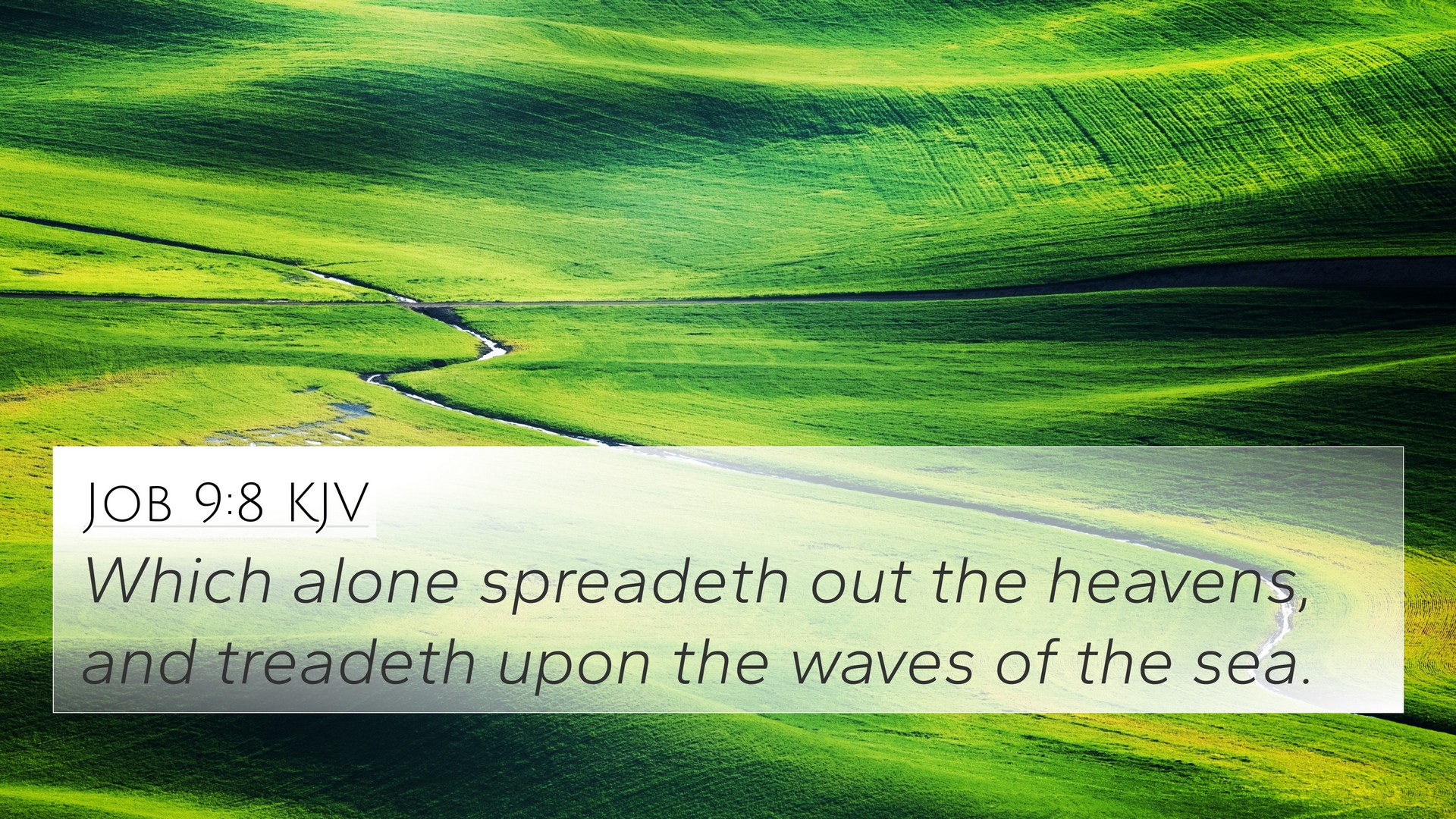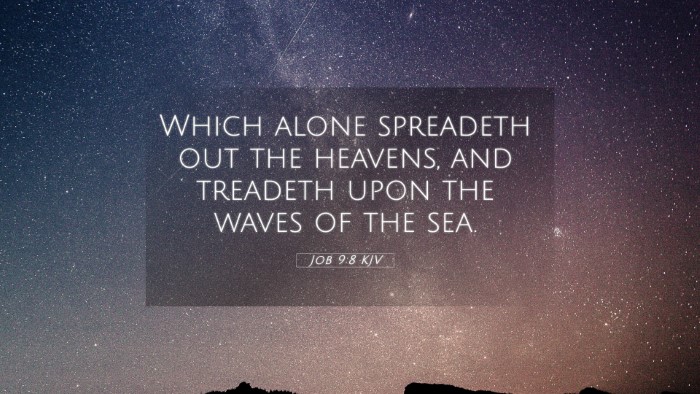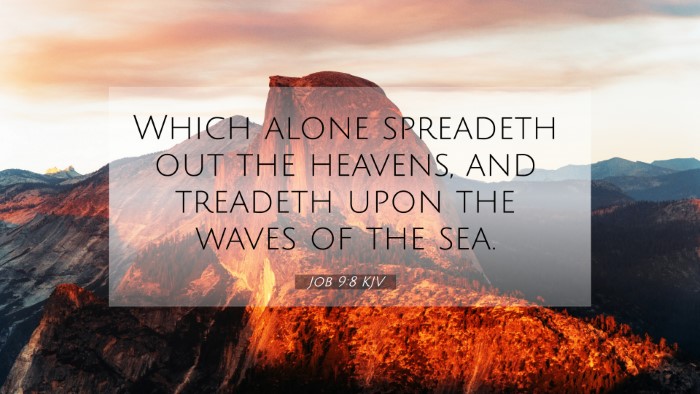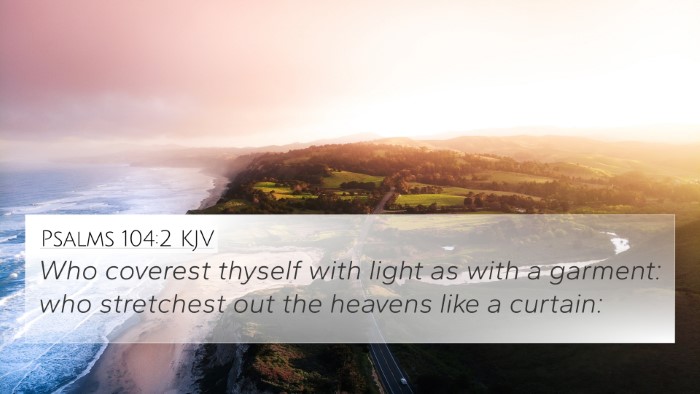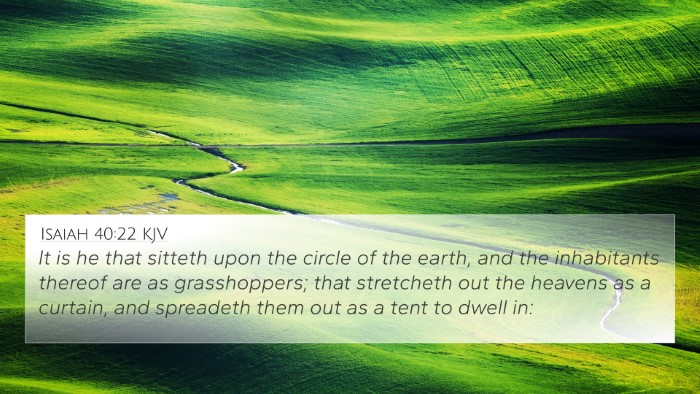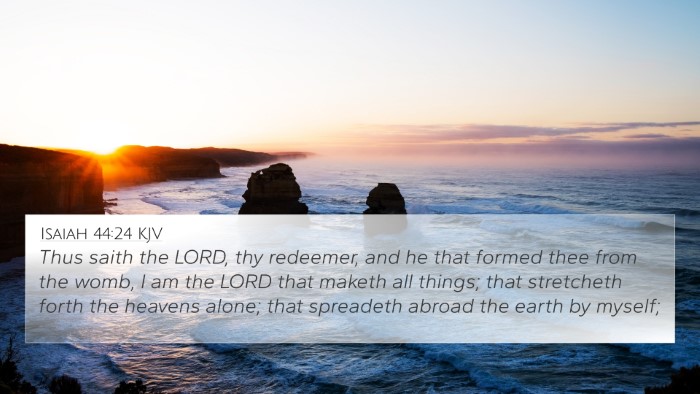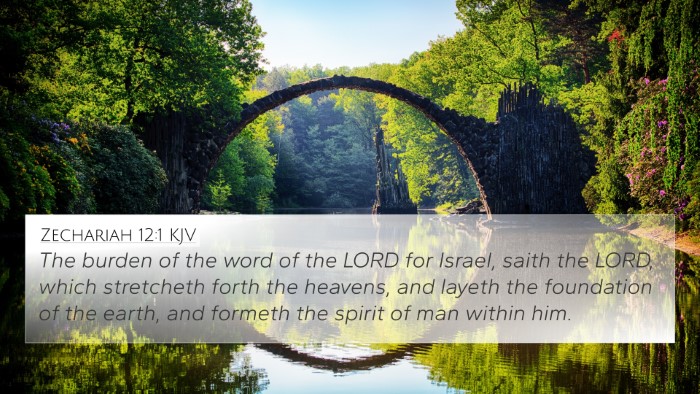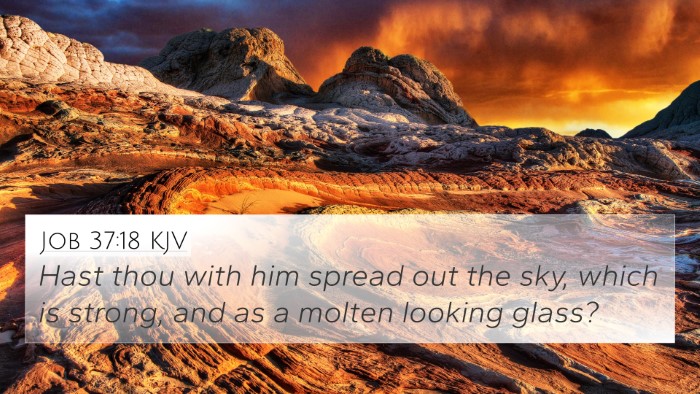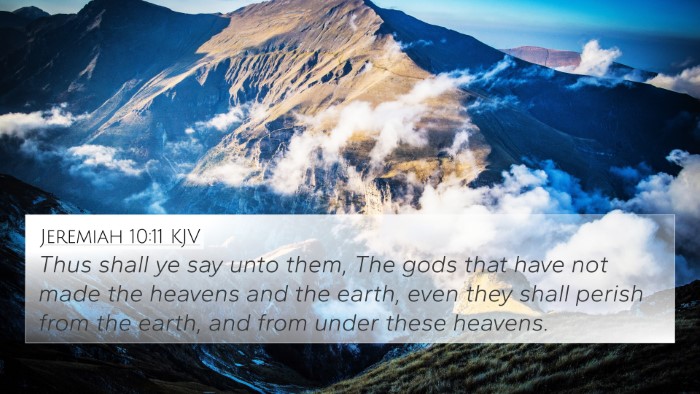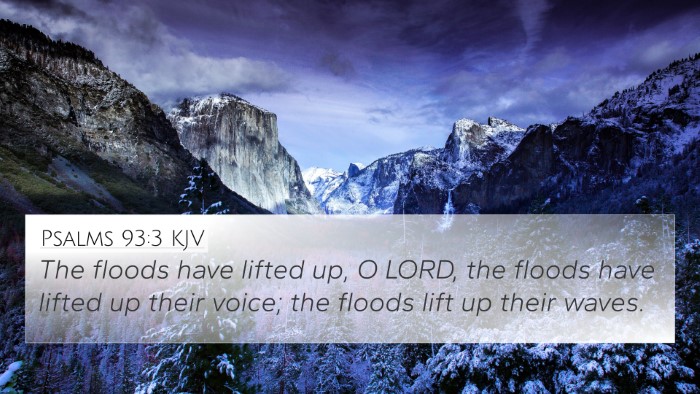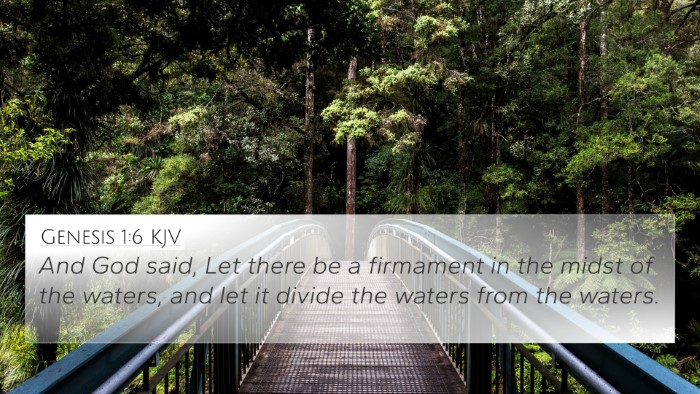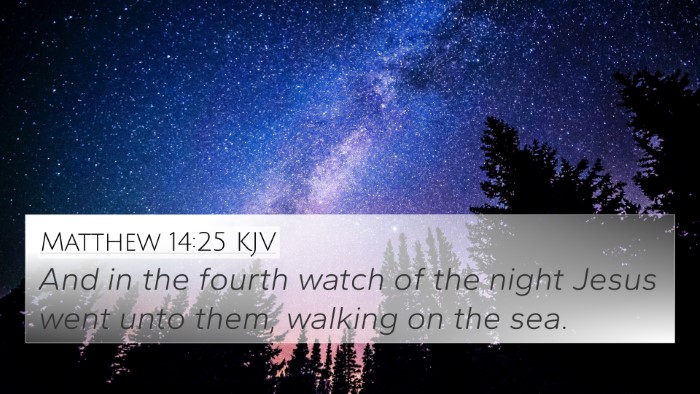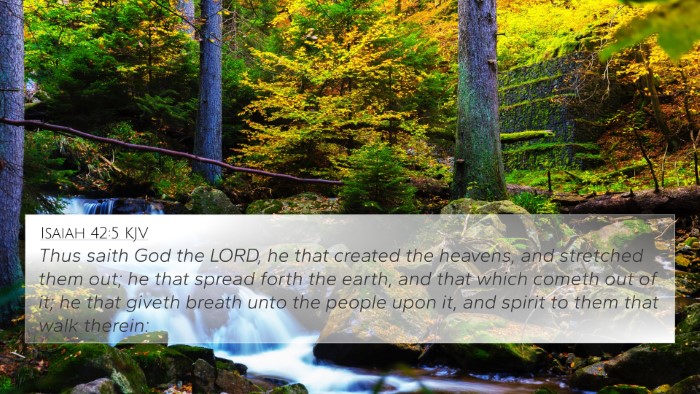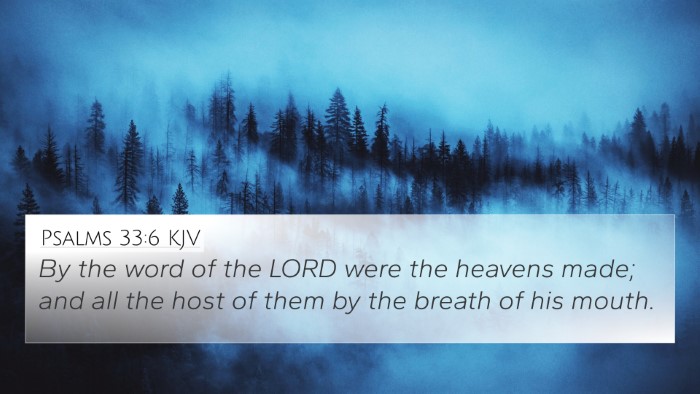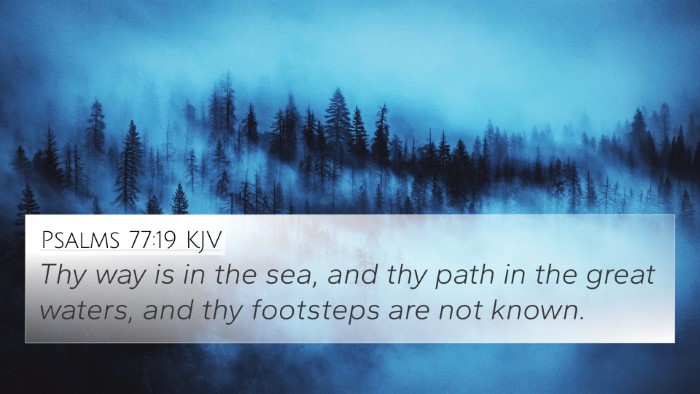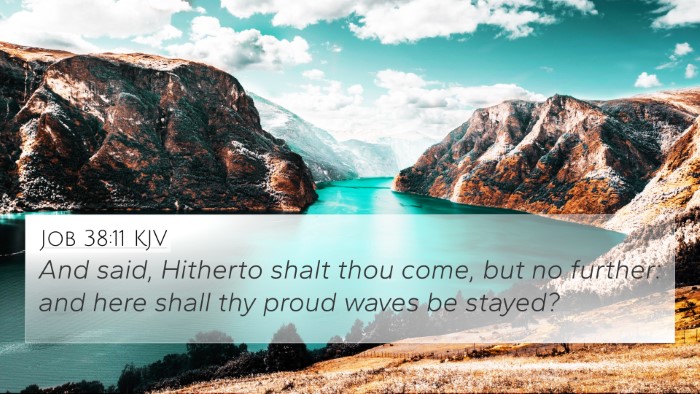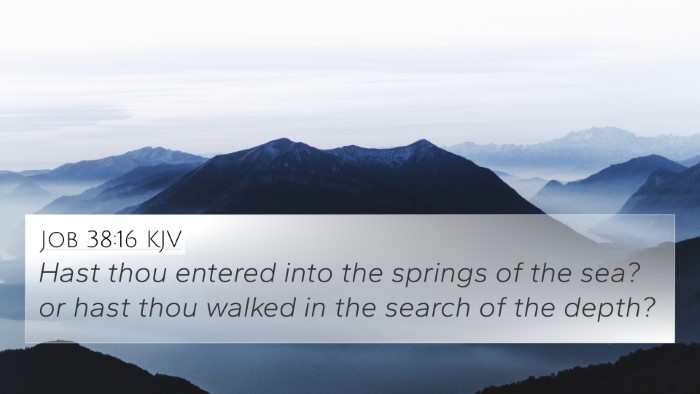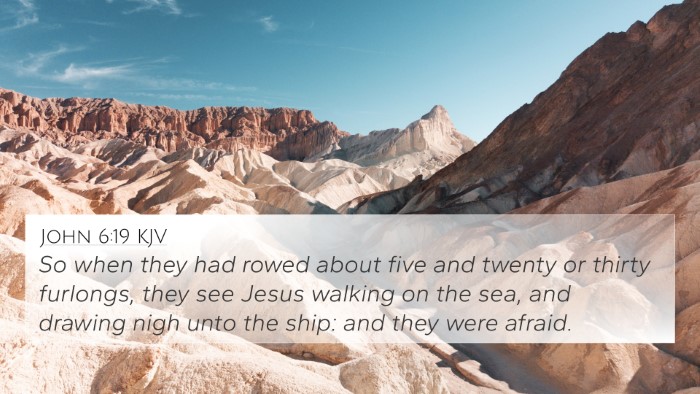Understanding Job 9:8
Job 9:8 states: "Which alone spreadeth out the heavens, and treadeth upon the waves of the sea."
Summary of Job 9:8
This verse highlights God's unmatched authority and power over creation, emphasizing His role as the Creator who not only forms the heavens but also governs the tumultuous sea.
Commentary Insights
Matthew Henry's Commentary
Henry elaborates on God's sovereignty and singularity, portraying Him as the sole creator of the vast heavens. He notes that God’s ability to 'tread upon the waves' brings forth imagery of His control over chaotic forces, signifying that even nature submits to His will. It serves as a reminder of the importance of trusting in God's power, especially in moments of distress.
Albert Barnes' Commentary
Barnes discusses the implications of God walking on the sea, invoking the idea that God is not only the creator but also the sustainer of the universe. This imagery signifies that God is above all elements of creation, which reassures believers of His omniscience and omnipotence. The verse thus reflects a deep theological understanding of God's nature.
Adam Clarke's Commentary
Clarke perceives this verse as a reflection on God's transcendence, emphasizing the phrase ‘spreadeth out the heavens’ to indicate the extraordinary majesty of God's work. He draws connections with the trials of life, suggesting that just as God orchestrates the cosmos, He also governs personal circumstances. This reinforces the notion that believers can derive comfort from the realization of God’s ultimate control.
Cross-References for Job 9:8
- Genesis 1:1 - "In the beginning God created the heaven and the earth."
- Psalms 104:24-25 - "O Lord, how manifold are thy works! In wisdom hast thou made them all: the earth is full of thy riches. So is this great and wide sea, wherein are things creeping innumerable, both small and great beasts."
- Isaiah 44:24 - "Thus saith the Lord, thy redeemer, and he that formed thee from the womb, I am the Lord that maketh all things; that stretcheth forth the heavens alone; that spreadeth abroad the earth by myself."
- Matthew 14:25 - "And in the fourth watch of the night Jesus went unto them, walking on the sea."
- Job 37:16 - "Dost thou know the balancing of the clouds, the wondrous works of him which is perfect in knowledge?"
- Psalms 19:1 - "The heavens declare the glory of God; and the firmament sheweth his handywork."
- Amos 5:8 - "Seek him that maketh the seven stars and Orion, and turneth the shadow of death into the morning, and maketh the day dark with night: that calleth for the waters of the sea, and poureth them out upon the face of the earth: The Lord is his name."
- Revelation 20:11 - "And I saw a great white throne, and him that sat on it, from whose face the earth and the heaven fled away; and there was found no place for them."
- Colossians 1:16-17 - "For by him were all things created, that are in heaven, and that are in earth, visible and invisible, whether they be thrones, or dominions, or principalities, or powers: all things were created by him, and for him: And he is before all things, and by him all things consist."
- Job 38:11 - "And said, Hitherto shalt thou come, but no further: and here shall thy proud waves be stayed."
Thematic Connections and Reflections
The themes presented in Job 9:8 can be compared and contrasted with the overarching narratives found throughout both the Old and New Testaments. The idea of God as the Creator extends beyond Job, linking to the creation narrative in Genesis and articulated once more in Colossians and Psalms.
Conclusion
Job 9:8 serves as both a theological affirmation of God’s sovereignty over creation and an invitation for believers to acknowledge their reliance on Him. By examining parallel verses and themes, believers can enrich their understanding of God's nature and His relationship with the world.
